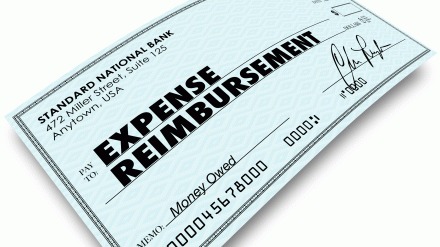Every tax season ministers and church employees nationwide are surprised to learn they owe more taxes than expected.
The reason?
Their employing churches haven’t adopted and followed an accountable reimbursement arrangement.
It sounds like a technicality.
In some ways, it is.
Here’s what it means: absent an accountable reimbursement arrangement, the Internal Revenue Service (IRS) views any reimbursed business expenses paid by an employer to an employee as nonaccountable. And this creates taxable income for the employee.
This may seem unfair. After all, ministers and employees may use their personal vehicles for church-related matters and deserve reimbursements for their miles. Or they may incur charges on personal credit cards for meals or other purchases officially tied to church business.
So, if they get reimbursed for these common church-related expenses, why should they then owe the government taxes on those reimbursements?
A common mistake
As unfair as it may seem, the rationale makes sense.
That an expense and corresponding reimbursement are legitimate is not enough for the IRS. If the church does not adopt a recognized way to handle them, the IRS will tax them.
In theory, this approach helps cut down on misuses of reimbursements for personal gain.
Richard Hammar, senior editor of Church Law & Tax, explained the seven common tax mistakes that churches and ministers make. And not adopting an accountable reimbursement arrangement is near the top of the list.
A provision in the Tax Cuts and Jobs Act of 2017 prohibits taxpayers from itemizing business expense deductions. This makes the adoption of an accountable reimbursement arrangement even more important.
This provision expires at the end of 2025. There is speculation that it will not be renewed as part of larger tax reform.
An easy fix
Fortunately, churches can easily fix this problem now by adopting an accountable reimbursement arrangement.
An arrangement is accountable when it meets these requirements:
- Only business expenses are reimbursed and include documentation (receipts) and explanations (business justifications);
- Reimbursement requests are submitted within 60 days;
- Any excess reimbursements inadvertently paid to the minister or employee are paid back to the church within 120 days; and,
- The employer pays reimbursements out of its funds, not by reducing the minister or employee’s salary.
Such a plan means the minister or employee reports and documents the business expenses in a timely way—and they’re verified—with the church. The reimbursements are not reported as income to the employee.
Accountable reimbursement arrangements are the best way for churches to handle business expense reimbursements for ministers and employees. To go deeper, chapter 7 of Hammar’s 2025 Church & Clergy Tax Guide offers more details, explanations, and illustrations.
